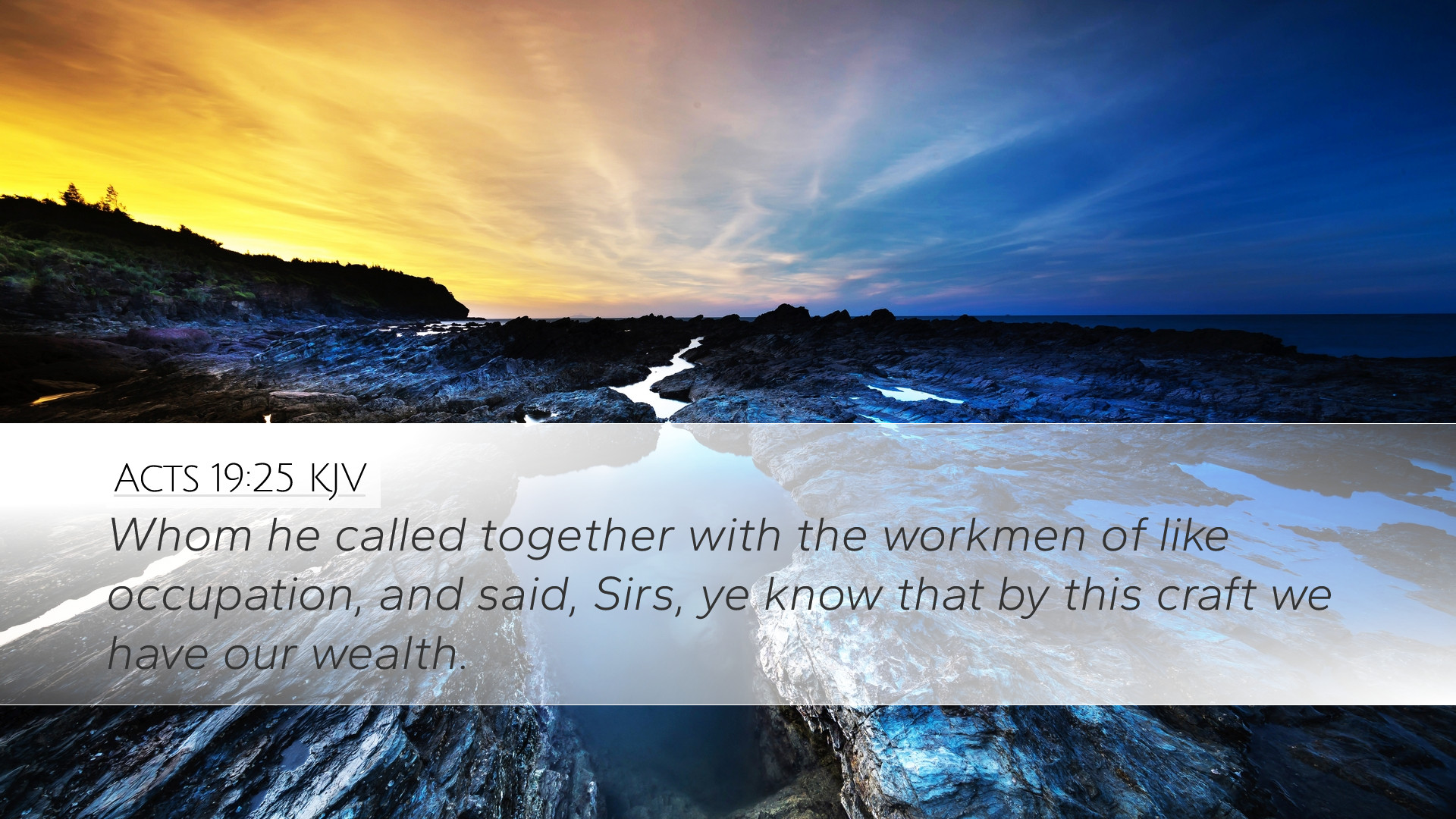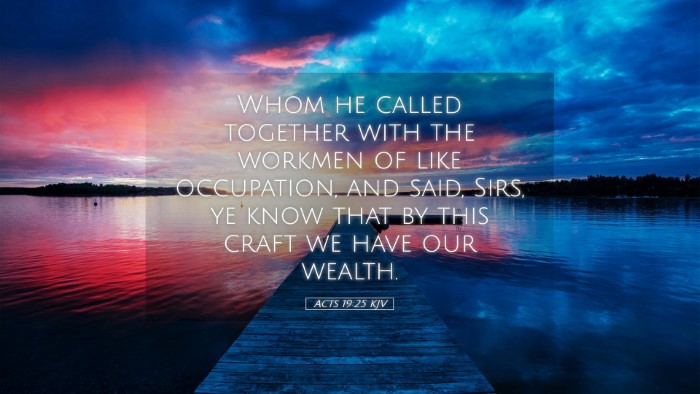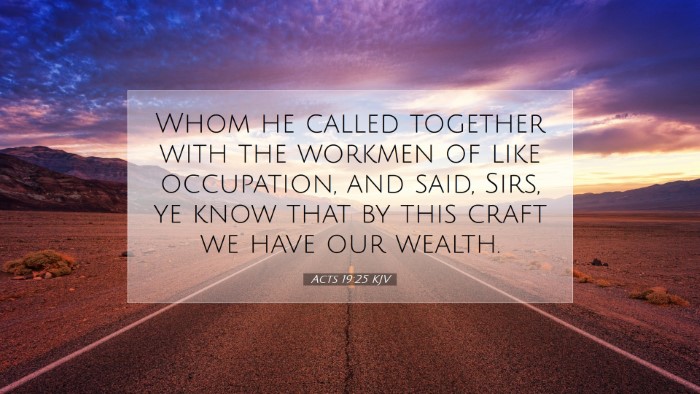Commentary on Acts 19:25
Acts 19:25 states:
"And he called together the workers of like occupation, and said, Sirs, ye know that by this craft we have our wealth."
This verse is a pivotal point in the narrative of Acts chapter 19, reflecting the tensions arising from the spread of the Gospel and its implications for local economies, particularly in Ephesus. Below is a comprehensive commentary derived from public domain sources, aimed to assist pastors, students, theologians, and Bible scholars in their understanding of this verse.
Context and Background
The verse occurs during Paul's missionary journey in Ephesus, a city known for its worship of the goddess Diana (Artemis). Ephesus was a commercial hub, and the craftsmen who made silver shrines for Diana had a vested interest in maintaining the status quo of idol worship. Paul’s preaching was undermining their trade, leading to significant economic and spiritual ramifications.
Detailed Commentary
Several key points emerge from Acts 19:25 that warrant discussion:
Economic Implications of the Gospel
Matthew Henry comments on the economic effect of Paul’s ministry, noting that the growth of Christianity threatened the livelihoods of idol makers. The phrase "by this craft we have our wealth" underscores that their economic stability was intricately tied to the pagan practices they propagated.
Albert Barnes elaborates on the conflict between faith and economic gain. He highlights the reality that conversion to Christianity, while spiritually enriching, may involve significant material losses and societal upheaval. The verse reflects the resistance from those whose lives and income are disrupted by the Gospel.
The Role of Community in Conflict
The gathering of craftsmen shows a community in distress, reacting against perceived threats to their trade. Adam Clarke emphasizes the unity among the craftsmen as they sought to confront the influences of Christianity. Their alliance indicates how economic interests can galvanize collective action, even in resistance to spiritual truths.
Spiritual vs. Material Wealth
This situation also raises critical questions about the nature of wealth and security. Matthew Henry poses the theological inquiry into what constitutes true wealth, contrasting material riches with spiritual riches found in Christ. The craftsmen's prioritization of their trade over the advancements of the Gospel illustrates the challenge of navigating faith in a materialistic culture.
Lessons for Today's Believers
Acts 19:25 serves as a cautionary tale for modern believers. Below are some contemporary applications:
- Faith and Economy: Christians today may find themselves in similar positions where their faith conflicts with prevailing economic practices or societal norms. Believers must discern how to uphold their values in the face of financial risk.
- Community Resistance: Just as the craftsmen gathered to protect their economic interests, Christians sometimes face collective pushback from communities resistant to the changes the Gospel brings. Understanding this dynamic prepares the faithful to respond with wisdom and grace.
- Prioritization of Wealth: The passage calls for self-reflection on what believers consider wealth. Are they, like the craftsmen, placing ultimate value on financial security, or do they recognize that spiritual riches in Christ far surpass temporal gains?
Conclusion
Acts 19:25 highlights the intersection of faith, economy, and community dynamics in Ephesus. The commentary from Matthew Henry, Albert Barnes, and Adam Clarke provides rich insights into the implications of this verse, reminding believers of the challenges that arise when the Gospel disrupts established norms. For pastors and scholars, this passage encourages ongoing dialogue about the nature of true wealth and the responsibility Christians have to engage with their cultures thoughtfully and faithfully.


